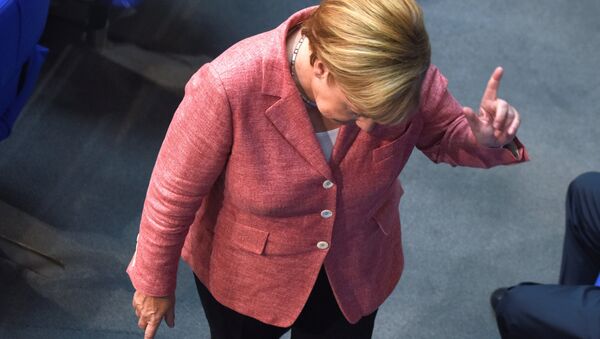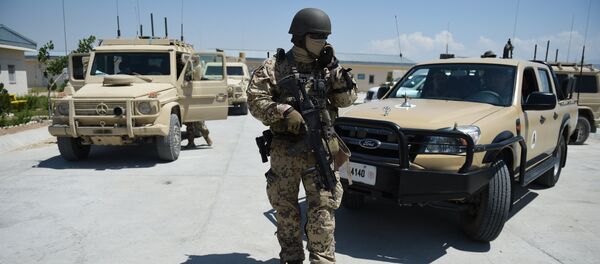"The chancellor said that 'we'll deal with it [migration crisis]' whatever it means now. But the truth is that public sector shrank by two million jobs after Germany's reunification… That is why no sane person would believe in 'we'll deal with it,'" Wendt told journalists.
"It is obvious that the government's efforts to ensure security are insufficient in general," Wendt said.
Staffing shortage
The promised police enlargement by 15,000 people translated into just 6,500 real jobs on the federal level that would have to tackle new challenges relating to crime, terrorism and social protection of refugees, Wendt said, adding that fresh staff would need about four years of training.
"Let me give an example. Europe and Germany in particular pledged to cut by 40 percent the number of fatal car accidents by 2020. To achieve this goal police should mobilize up to 30 percent of staff in some federal states. On the other hand, police have to guard refugee shelters amid over 1,000 attacks against the shelters last year. It is impossible to accomplish these global tasks simultaneously amid staffing shortage," Wendt concluded.
Outdated infrastructure
Wendt criticized the "hopelessly outdated" police and prosecutors infrastructure, citing the lack of a single system of criminal records on the federal level.
"When the same refugee comes to a migration center in Berlin to register under one name, and the next day he does the same under another name — this is first and foremost an infrastructure failure," Wendt said.
He slammed the security building package proposed by the government in August, in particular the arms and equipment overhaul in the law enforcement agencies, citing the lack of funds for proper implementation of the plan.
"Police in Berlin buy outdated pistols in Schleswig-Holstein while police in Schleswig-Holstein are equipped with new guns," Wendt said.
Terrorism in Germany
"Terrorism is not coming to Germany, it has been here for a long time," he said.
Hundreds of terrorists came to the country with the flow of migrants and refugees, Wendt said, adding that the German authorities dealt with six to eight terror alerts relating to refugees every day.
"The state could not afford to be weak and unwise when it comes to security and terror threat prevention," Wendt concluded.
German police are on high alert after a series of violent attacks rocked the country in July.
On July 18, a 17-year-old Afghan asylum seeker launched an ax and knife attack on passengers of a commuter train in Bavaria, wounding five tourists. Four days later, a German of Iranian origin shot nine people in Munich and committed suicide.
On July 24, a Syrian refugee exploded a bomb outside a music festival in Bavaria’s Ansbach, killing himself and wounding 15 bystanders, while another Syrian killed a woman with a machete in Reutlingen near Stuttgart. The Islamic State (IS) extremist group, banned in Russia, claimed responsibility for the bombing.




